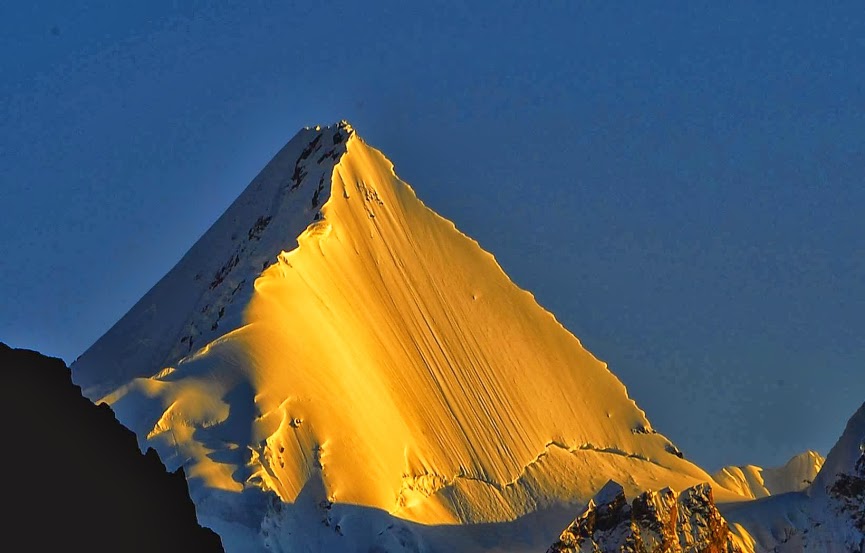Japanese climber Onishi Hiroshi tragically died after falling into a crevasse on the 7,027-meter Spantik Peak, also known as Golden Peak, in the Gilgit-Baltistan district's Nagar region.
Hiroshi, 64, was part of a four-member Japanese team that had hired two porters for the climb. The team reached the summit on July 1, and the incident occurred during their descent on July 2. Hiroshi's body was recovered and brought to the camp on July 3.
This incident follows another tragedy last month when one of two Japanese climbers, Ryuseki Hiraoka and Atsushi Taguchi, was found dead on the same mountain. They had been attempting to summit Spantik without the help of porters and were last seen on June 10. The body was found 300 meters below Camp 3, but it was unclear which climber's body had been recovered. The search for the second climber continues.
Spantik, also known as the Golden Peak, is described as a "relatively accessible and straightforward peak" by Adventure Tours, the company that organized the expedition. Despite this, the mountain has proven challenging and dangerous, as evidenced by these recent fatalities. Pakistan is home to five of the world’s 14 mountains higher than 8,000 meters, including K2, the world’s second-highest peak.



























